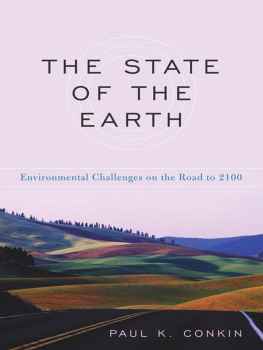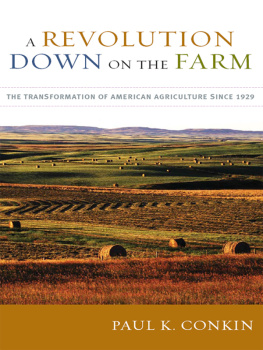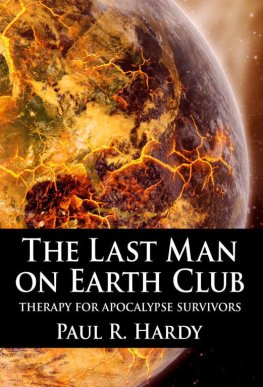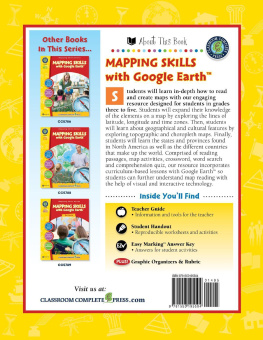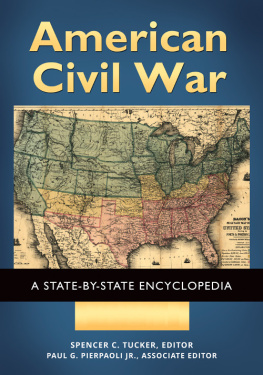Paul K. Conkin - The State of the Earth
Here you can read online Paul K. Conkin - The State of the Earth full text of the book (entire story) in english for free. Download pdf and epub, get meaning, cover and reviews about this ebook. publisher: The University Press of Kentucky, genre: Religion. Description of the work, (preface) as well as reviews are available. Best literature library LitArk.com created for fans of good reading and offers a wide selection of genres:
Romance novel
Science fiction
Adventure
Detective
Science
History
Home and family
Prose
Art
Politics
Computer
Non-fiction
Religion
Business
Children
Humor
Choose a favorite category and find really read worthwhile books. Enjoy immersion in the world of imagination, feel the emotions of the characters or learn something new for yourself, make an fascinating discovery.
- Book:The State of the Earth
- Author:
- Publisher:The University Press of Kentucky
- Genre:
- Rating:3 / 5
- Favourites:Add to favourites
- Your mark:
- 60
- 1
- 2
- 3
- 4
- 5
The State of the Earth: summary, description and annotation
We offer to read an annotation, description, summary or preface (depends on what the author of the book "The State of the Earth" wrote himself). If you haven't found the necessary information about the book — write in the comments, we will try to find it.
The State of the Earth — read online for free the complete book (whole text) full work
Below is the text of the book, divided by pages. System saving the place of the last page read, allows you to conveniently read the book "The State of the Earth" online for free, without having to search again every time where you left off. Put a bookmark, and you can go to the page where you finished reading at any time.
Font size:
Interval:
Bookmark:

Publication of this volume was made possible in part by a grant from the National Endowment for the Humanities.
Copyright 2007 by Paul K. Conkin
Scholarly publisher for the Commonwealth, serving Bellarmine University, Berea College, Centre College of Kentucky, Eastern Kentucky University, The Filson Historical Society, Georgetown College, Kentucky Historical Society, Kentucky State University, Morehead State University, Murray State University, Northern Kentucky University, Transylvania University, University of Kentucky, University of Louisville, and Western Kentucky University.
All rights reserved.
Editorial and Sales Offices: The University Press of Kentucky
663 South Limestone Street, Lexington, Kentucky 40508-4008
www.kentuckypress.com
11 10 09 08 07 5 4 3 2 1
Library of Congress Cataloging-in-Publication Data
Conkin, Paul Keith.
The state of the Earth : environmental challenges on the road to 2100 / Paul
K. Conkin.
p. cm.
Includes bibliographical references and index.
ISBN-13: 978-0-8131-2411-7 (hardcover : alk. paper)
ISBN-10: 0-8131-2411-5 (hardcover : alk. paper)
1. Environmental responsibility. 2. Environmental education. 3. Environmental policy. I. Title.
GE195.7.C66 2006
333.72--dc22 2006032085
This book is printed on acid-free recycled paper meeting the requirements of the American National Standard for Permanence in Paper for Printed Library Materials.
Manufactured in the United States of America
| Member of the Association of |
Figures
Table
I suspect few people regret the passing of the twentieth century. It is impossible to forget the troubled events from 1914 to 1945: international turmoil, two great wars, a worldwide depression, the rise of two totalitarian ideologies and regimes, the cruelty of the Holocaust, and total warfare encompassing civilian populations. Just as remarkable, and possibly even more momentous in long-term consequences, was the unprecedented, and almost incomprehensible, growth of human populations and human consumption during that century.
After growing from 1.7 billion to 3 billion from 1900 to 1960, the world population doubled, from 3 billion to just over 6 billion, from 1960 to 2000. The United Nations Population Division estimated a population of almost 6.5 billion in 2005. By most estimates, the world's population will be around 9 billion by 2050. Of the necessary conditions for this population explosion, two are all but obvious. One was the development and worldwide dissemination of new knowledge and new technologies in the prevention and cure of diseases. This increased life expectancy in all parts of the world, but with the most dramatic consequences in much of Africa and Asia. The other necessary condition was the dramatic increase of human economic productivity, with the most critical improvement in agriculture. This resulted from a continued but accelerated use of new knowledge and more efficient tools. The energy for this productivity explosion came largely from the controlled burning of organic materials.
The economic growth exceeded that of population. Estimates here are not exact, but in rough terms the world domestic product and energy use rose by at least twelve times in the twentieth century. Most of this increase was in the twenty-five wealthiest countries, but some growth occurred in all areas of the world. Humans used more fossil fuels in this one century than in all past history. This accompanied a near tenfold increase in water use. As with population, most of this growth came after World War II, in what turned out to be an almost frenzied period of growth in all areas.
This growth in both population and consumption, with all its rewards, has led to a twofold problem that can only worsen as the new century progresses. One is regional scarcities of essential resourcessoil, water, and energyor scarcities already suffered in much of the underdeveloped areas of the earth. The other is the burden placed on the earth and on other species by what humans have doneby polluting air, water, and soil, by stealing essential living space away from other species, and by contributing to such major changes in our atmosphere and in the oceans as to threaten major climate change. Compounding these problems is a huge ethical dilemma. The gap in incomes between the top one-fourth of humanity and the lower three-fourths is wide. By almost any calculation, the earth does not have the basic resources needed to raise the poorer people of the world to living standards even close to that of the top twenty-five countries. And if, by some miracle, everyone in the world could consume what Americans do, the earth could not long absorb the pollution and growing burden of waste products.
It is difficult to imagine a rate of growth in either population or consumption in the twenty-first century that comes even close to that in the twentieth. What if the earth's population did quadruple, and thus move up to 24 billion? What if resource use and consumption increased by twelve times? Neither will happen, for the earth could not begin to sustain either increase. Thus, the great challenge: either stabilize populations and limit consumption, or find new ways of coping with both types of growth. Population growth is not a problem for affluent countries, but their present pace of growth in production and consumption, if continued, will soon lead to major resource scarcities and problems of pollution. Even if rapid consumptive growth continues yet awhile in wealthy countries, such growth will require a further draw down of resources, such as oil, from the poorer areas of the world. This will invite continued political tensions, and make more difficult any narrowing of the present gap between living standards in rich and poor countries.
At present, knowing what we now know with some degree of assurance, it is almost impossible to be sanguine about the state of the earth, and thus the overall human prospect, by the end of this century. In so many areas one can cite the problems but not identify any clear or politically feasible solutions. It is easy to suggest that the people in the underdeveloped world should curtail population growth. Birthrates are now declining in most counties, but not rapidly enough to stabilize the world's population before 2050, and by most forecasts not before 2100. It is easy to suggest that people in wealthy countries, where populations are often stable or in decline, should change patterns of consumption or even lower their level of material consumption. But to persuade them to do so would require radical changes in the very structure of their societies.
These problems, these challenges, are what I have tried to address in this book. I worry about them all the time. I know most other people share these concerns. In this book, it is my purpose to help them better understand the challenges that lie ahead. I hope I have offered such an understanding of the earth and of life on earth as to enable laypeople to understand the planet's vulnerability to human activities. I have tried to survey the road that led to the major environmental issues that humans face today. I want to help people understand why we need to attend to these problems, but also to understand the risks and costs of such efforts.
This is no easy task. The issues are complex, and involve the insights developed by almost every academic discipline. I need to be clear, but not at the expense of being over-simplistic. The literature on environmental issues is now monumental, and growing exponentially every year. No one can read it all. No one can have the technical knowledge to understand it all. My task has been to try to gain an understanding of the issues, and to communicate that understanding in a way that will inform a broader audience than is addressed by most experts, and without the political agenda that accompanies most books and articles by committed but often deeply divided environmentalists.
Font size:
Interval:
Bookmark:
Similar books «The State of the Earth»
Look at similar books to The State of the Earth. We have selected literature similar in name and meaning in the hope of providing readers with more options to find new, interesting, not yet read works.
Discussion, reviews of the book The State of the Earth and just readers' own opinions. Leave your comments, write what you think about the work, its meaning or the main characters. Specify what exactly you liked and what you didn't like, and why you think so.

